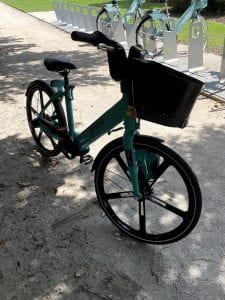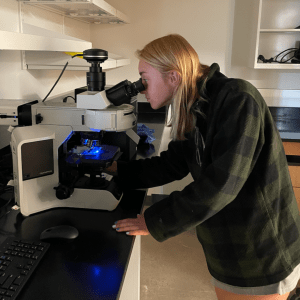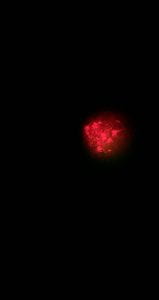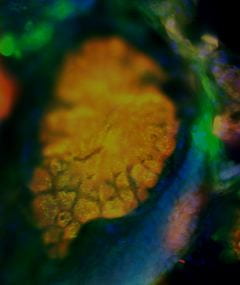This week we caught up with Jennifer Sella, an Exercise Science Senior minoring in Psychology! Jenny and her mentor, Dr. Morgan Hughey, received a SURF 2021 Grant to explore the energy expenditure differences between bicycles and electric-assist bicycles for Charleston’s bike share program.
Jenny shared with us, “Bike share programs are a growing trend in cities around the world, where users can rent, ride, and return bicycles at several stations designed to offer alternative and more physically active transportation. Many bike share companies are further innovating by offering electric bicycles (e-bikes) which use a battery and motor to offer a boost while the user is pedaling. The goal of our study was to quantify the differences in energy needed to use a regular bike share bicycle compared to an e-bike and to examine differences in individual perceptions of difficulty between the two bike types. Compared to regular bikes, we hypothesized that e-bike rides would use about 25% less energy, yet individuals would report greater enjoyment on the e-bike. Essentially, e-bikes may not offer as much physical activity as a regular bicycle, we predicted that they would be more enjoyable to users and still raise one’s heart rate enough to offer substantial activity “points,” making them all around more favorable to a city’s population.”
We asked Jenny what her favorite memory from her project was, ” truly, every participant’s initial reaction to riding the e-bike. We would have participants start riding the bike in the parking lot at Hampton park before entering the bike lane on the road. This allowed participants to get a good “feel” for how the bike works, and adjust the seat as needed. Hilariously, as one started pedaling and the e-bike motor kicked in, without fail, every participant exclaimed “WOAH!” It was very funny for me to hear over and over again, and every single participant said it.”
“I gained a lot from this project including hands-on experience, new knowledge, and skill development. I applied skills and knowledge I had originally learned in the classroom to a more involved, hands-on project. From practical applications of how the body works and responds to exercise, to drafting the methods section for our manuscript, I could apply the concepts learned in my Exercise Science classes to a more “real world” experience. While I am still deciding what I want to do after graduation specifically, this project has emphasized my desire to work with people and in a healthcare profession. Beyond the busy work and time spent on all other aspects of this project, I most appreciated the time I had engaging directly with participants. I am certain I will take the skills from both the classroom and this specific hands-on experience into my career in the healthcare field.” Jenny told us.
“I hope readers understand the importance of incorporating physical activity in their daily lives, even in ways that may seem unconventional or “easy.” Replacing commute travel with a bike, or e-bike, is a great way to increase activity and, if whole communities integrated more usage of bike share programs, then whole communities health and fitness would improve.” Jenny shared.
Attached are some photos from Jenny’s project. Thank you to Jenny for sharing your SURF 2021 experience!













